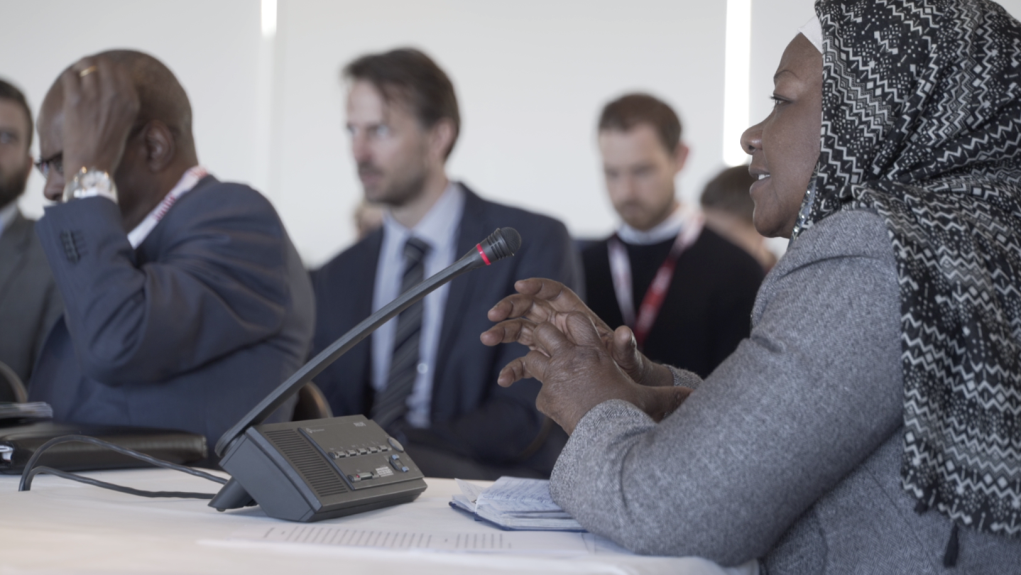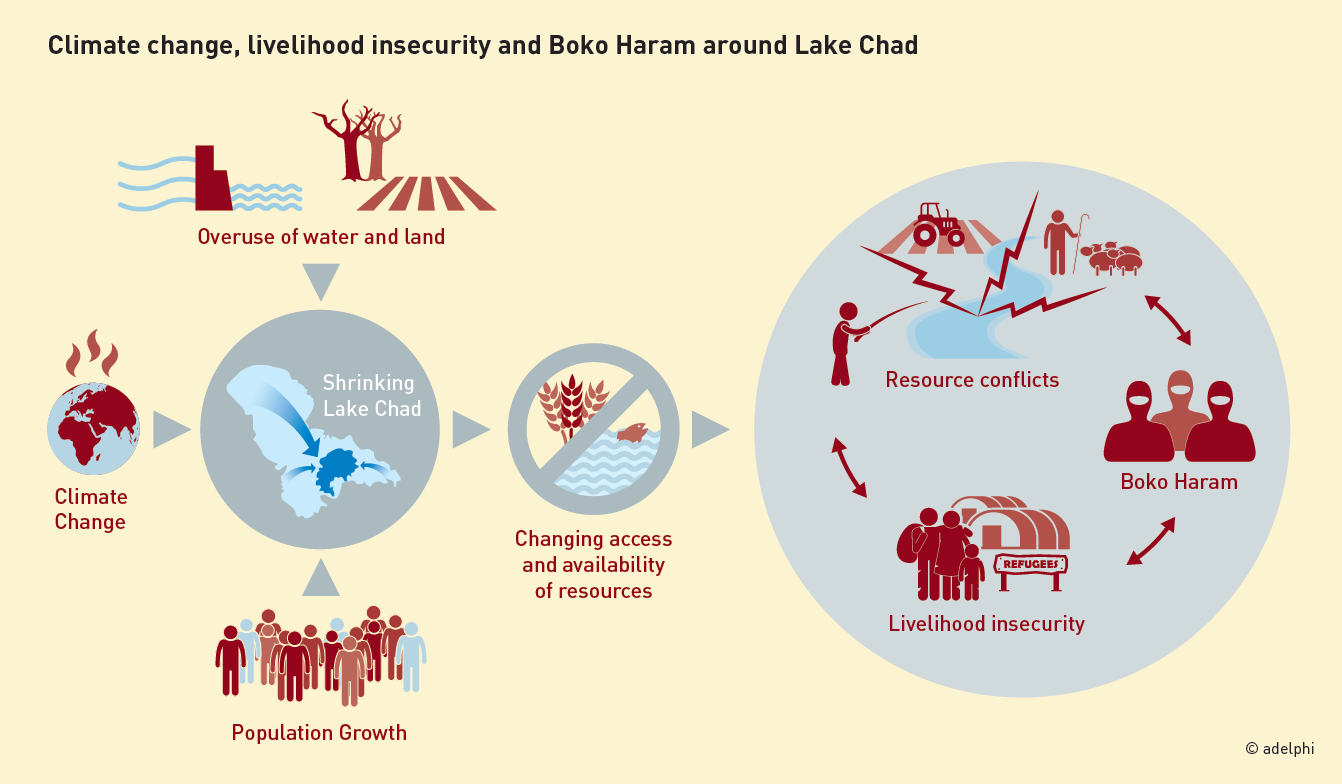At the 2017 Stockholm Forum on Peace and Development from 3 - 4 May, adelphi, in partnership with SIPRI and SEI, and with support from the Planetary Security Inisitative, convened two sessions on climate change and fragility risks in the Lake Chad region, to discuss the different approaches and next steps for building resilience.
Multiple stressors converge in the Lake Chad region. Unemployment, depleting resources, poverty and conflict all interact with climate change. A massive shrinking of the lake has resulted in livelihood insecurity, and exacerbated tensions between pastoralists, farmers and fishers. Recent research has shown that there is an increased risk of terrorist recruitment from groups, such as Boko Haram, and cross-border displacement. As insurgencies have increasingly spread from Nigeria across the region, the fragile security situation has intensified. The impacts of climate change will exacerbate these pressures on states and societies around Lake Chad even further, therefore it is of utmost importance to act wisely and learn from previous experiences on the ground.
The workshop discussions between selected participants from the Lake Chad region, and representatives of donor and development cooperation organizations, civil society representatives and hydrology experts were very insightful and will feed into the policy programming responses.
Mamadou Diop, regional representative of Action Contre Le Faim said: “Aid institutions focus on national responses, but we need to focus on the region – not one single country.”
On the ways in which climate change interacts with existing social pressures, Mohammed Bila, from the Lake Chad Basin Commission, explained that “in Lake Chad, climate variability meets general vulnerability”.
Mohammed Yahya of UNDP observed that common issues, which affect the whole region, are that there are “peripheral regions, or ungoverned spaces. They have had no investment for a long time. So with the added pressure of climate change, the periphery now comes to the centre because of [violent extremism] as a vehicle to export concerns to the centre.”
On the links between climate change and terrorism, Amalkher Djibrine, from Women's International League for Peace and Freedom Chad, explained that “for decades the people of Lake Chad have had little access to information or education. They feel like they do not belong. When someone feels like they do not belong to a country, they are not part of the national fabric. When it comes to Lake Chad, Boko Haram simply found a prepared dish. It was easy for them to recruit because people did not feel they belonged.”
On the need to balance humanitarian need with root causes, Amalker Djibrine stressed that “we need to move beyond the urgent if we are to address sustainable peace”.
Conclusions:
-
To help promote action on climate-security issues at a global level, the Swedish government has pledged to finance a High Representative on Climate and Security at the UN.
-
At the regional level, a recent UNSC resolution on Lake Chad has tasked the UNSG to organise another high level visit to the region with the World Bank to explore and the UNSG to write a report on the findings.
The G7 climate-fragility working group have also indicated that they would like to focus on the Lake Chad region, and findings from this workshop and local expertise in Stockholm will directly help inform the shape of future action.

The speakers were:
-
Carl Skau, Swedish Ambassador to the Security Council
-
Djibrine Amalkher Souleymanem, Founder and President of Women’s International League for Peace and Freedom Chad
-
Florence Sylvestre, Director of Research at IRD and vice-director of CEREGE
-
Hamsatu Allamin, Regional Representative/Conflict Analyst, Nigeria Stability and Reconciliation Programme (NSRP), and national executive member of the Federation of Muslim Women’s Associations in Nigeria
-
Ibrahim Lumumba Idi-Issa, Deputy Executive Secretary, Permanent Interstate Committee for Drought Control in the Sahel (CILSS)
-
Johan Schaar, senior advisor at the Swedish International Development Agency
-
Malin Mobjörk, Senior Researcher in the SIPRI Security and Development Programme
-
Mamadou Diop, Regional Representative, Action Contre le Faim, West Africa Regional Office
-
Michel van Winden, strategic policy advisor at the Netherlands Ministry of Foreign Affairs
-
Mohammed Bila, representative of the Lake Chad Basin Commission (LCBC), Lake Chad Basin Observatory
-
Peter Fischer , Deputy Director-General for Globalization, Energy and Climate at the German Federal Foreign Office
-
Jöran Bjällerstedt, Ambassador-at-large for Peacebuilding and Statebuilding, Sweden
The session was moderated by SIPRI Director, Dan Smith.

The report “Insurgency, Terrorism and Organised Crime in a Warming Climate” contains a case study analysis of Lake Chad and the root causes of conflict. You can read it here.



